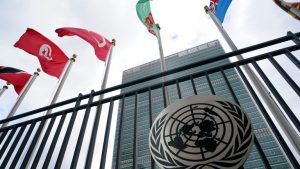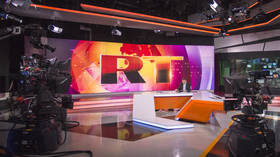This is the biggest challenge facing the UN right now. The institution is a product of Western political culture and that’s its problem.

The annual United Nations General Assembly – which brings together world leaders and top officials – has opened in New York. This time, the General Debate is preceded by the Future Summit, an initiative of the UN Secretary-General António Guterres. Next year, the global body will be 80 years old. And its governing institutions wish to formulate a set of proposals on how it should work to meet a changing world.
No one has exaggerated expectations. The UN is not a world government with the power to make decisions and enforce them. It is rather a barometer of the state of international relations. Which means it functions normally when world affairs are relatively organized. In other words, when there is an effective hierarchy. At present there is no such thing. Moreover, the prevailing mood in the community can be described as non-aggressively rebellious. However, while there’s no desire for a ‘world revolution’ (except from extremist fringe people who are easily shouted down), there’s a growing rejection of the idea of following orders.
In this context, the documents to be adopted – the Compact for the Future, the accompanying Global Digital Compact and the Declaration on Future Generations – are clearly only frameworks. And they may not even be agreed: participants in the process are these days particularly sensitive to wording, and hyper-sensitive to perceived attempts to pull the rug out from under some countries, or groups of them. The ability or inability to agree on texts will be an indicator of the state of play but will have little impact on it. In any case, the question of the future of international institutions will remain on the agenda as a reminder of the transformation of the global system.
The concerns of the organization’s leadership are understandable. The UN in its present form is a throwback to a bygone era. And it is not just that the composition of the Security Council reflects the results of a war that ended in the first half of the last century. The question is whether the global system, whose governing mechanisms are institutions formed by the agreement of the leading players, is still intact.
First of all, who are these leading players now? For starters, the inability of the current ‘five’ to agree on enlargement is cited as an obstacle to Security Council reform. Not without reason, but it is reasonable to ask another question: are the candidates for the coveted seats able to agree on which of them will join the prestigious body? It doesn’t look like it, because there may be many criteria (regional, economic, demographic, historical, cultural and religious, etc.), and for each of them there are preferences that often don’t coincide.
Secondly, what powers should the reformed institutions have? Traditionally, they point to the primacy of international law, since the UN is the guardian of the norms laid down in its Charter. But let’s look at it in practice: all law is a derivative of the balance of power, or rather the ability to influence legal interpretations. The UN Charter already leaves a lot of room for interpretation – just think of the rather tricky wording about territorial integrity and the right to self-determination. And in today’s highly competitive environment, any ambiguities and divergent interpretations are fraught with direct conflict, resolved not by law but by force.
There is another aspect. Current international law is a product of Western political culture and thought. This is neither good nor bad, just a historical fact. In this case, we are not talking about the so-called “rules-based order” that has become an instrument of American hegemony, but about legal norms that are recognized by all. In a world dominated by Western (first European, then transatlantic) conceptual approaches, they naturally also determined the legal sphere. But the changes that are now taking place are eroding this monopoly. It’s a natural process (as circumstances change) and not the result of anyone’s deliberate actions.
The continuation of this process irreversibly means the cultural and political diversification of the world. This is also true of legal cultures, which are all different and at least bear the imprint of their own traditions. And international norms in a heterogeneous world should, in theory, not be guided by a single approach, but should harmonize different ones.
The multipolar world (the term is imperfect and does not explain much, but we will use it because it is commonly used) is an environment that is as unfavorable as possible for regulation. However, this does not mean that we should give up on the UN. The complexity of the world doesn’t negate its interconnectedness. And this very interconnectedness affects the nature of competition and makes agreements binding, at least on those issues where there is no escape. And there are many.
Perhaps the starting point for a future reform of the UN, which will one day take place, should be the recognition that the most important question is not ‘who are the chiefs here’ (rows over the composition of the Security Council, etc), but how to build interactions between the many Indians (to borrow a metaphor), who are not part of the historic five. They don’t want to obey orders, but they are playing an increasingly prominent role on the world stage and are formulating their own demands. The nature of these demands, in fact, are exactly the very global problems that the UN exists to solve.
By Fyodor Lyukanov
Republished by Rt.com
This article was first published by the newspaper Rossiyskaya Gazeta and was translated and edited by the RT team
Republished by The 21st Century
The views expressed in this article are solely those of the author and do not necessarily reflect the opinions of 21cir.com

